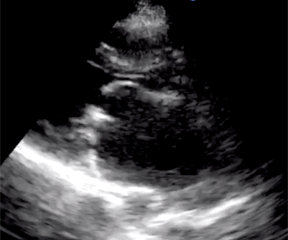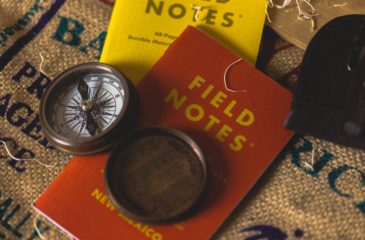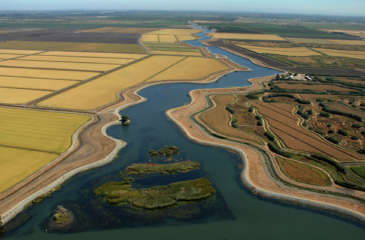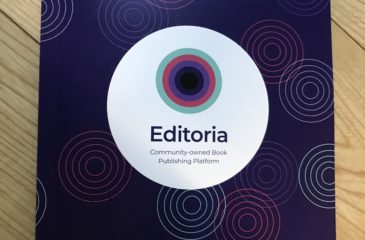Features
-
EarthArXiv Preprint Server Re-Launches on CDL-Hosted Janeway Platform
California Digital Library (CDL) is excited to announce the official re-launch of the EarthArXiv preprint server, now hosted by CDL on the Janeway platform. The site provides access to nearly 1,500 recent preprint publications covering a wide range of topics in Earth Science — and researchers who wish to make their findings immediately and openly available can submit papers now. “EarthArXiv’s partnership with the CDL expands our capacity to grow sustainable open publishing for the Earth sciences,” said Bruce Caron, one of the founders of EarthArXiv. “CDL and the entire University of California system have demonstrated global leadership for open […]
-
Ultrasound in Resource-Limited Settings: A Case Based, Open Access Text
Faculty at UC Davis Health in collaboration with the California Digital Library (CDL) and Blaisdell Medical Library are pleased to announce the release of Ultrasound in Resource-Limited Settings: A Case Based, Open Access Text. This new online resource aims to provide an open access clinical resource for radiologists and clinicians who practice ultrasound in low and limited resourced healthcare settings. The project was conceived of and developed by two UC Davis Health physicians: Michael Schick and Rebecca Stein-Wexler, with help from Aida Nasirishargh as the online editor. Drs. Schick and Stein-Wexler have been teaching and using ultrasound for many years […]
-
New Course Aims to Bring Climate Change Solutions to Global Audience
Four-part series is first offering on new UC San Diego Online platform This article originally appeared on thisweek@ucsandiego. Images (c) University of California; contact UC San Diego for reuse. Scripps Institution of Oceanography climate scientist Veerabhadran Ramanathan has long had the goal of educating and empowering “one million climate warriors” who will help society tackle the world’s greatest existential threat. A series of new massive open online courses (MOOCs) being offered to the public could provide a substantial leap toward reaching that goal. “Bending the Curve: Climate Change Solutions” is a four-part course series that will be made available to […]
-
UC launches toolkit for negotiating transformative agreements with scholarly publishers
Following the 2018 release of the provostial Systemwide Library and Scholarly Information Advisory Committee’s Call to Action, the University of California (UC) Academic Senate and Libraries partnered to utilize publisher negotiations to address the issues of journal subscription affordability and open access (OA) transformation. UC’s publisher negotiations have since been closely followed around the globe. In the United States, UC’s actions and stance, particularly with Elsevier, have prompted a national conversation about how research institutions can restructure their publisher contracts in the service of OA publishing. While UC has not yet secured a transformative agreement with Elsevier, the university has […]
-
Hosting an editors’ roundtable to discuss transitioning journals to OA
Earlier this year the OSC released a toolkit for transitioning journals to open access. Today we’re adding a new resource to this page: a guide to hosting a roundtable event for editors and editorial board members. A journal flipping roundtable discussion can help gauge the level of interest in journal flipping among journal editors on a campus, and can also connect editors curious about transitioning to OA with people and tools to help navigate such a change. In 2018, the UCSF library held a roundtable with nine editors from UCSF and publishing experts from the library and UC Press. The […]
-
Open Statement: Why UC terminated journal negotiations with Elsevier
March 20, 2019 (revised April 25, 2019) The University of California has taken a firm stand on both open access to publicly funded research and fiscal responsibility by deciding not to renew its journal subscriptions with Elsevier, the world’s largest scientific publisher. Here’s why: Elsevier’s proposal Under Elsevier’s proposed terms, the publisher would capture significant new revenue on top of the university’s current multimillion-dollar subscription while significantly diminishing UC’s rights to Elsevier content. Elsevier’s latest proposal, dated January 31, 2019, did consider some of UC’s conditions, including providing UC authors with open access publishing options across much of the publisher’s portfolio of journals. […]
-
Transitioning journals to open access: Guidance from and for the field
One key objective of University of California’s Office of Scholarly Communication (OSC) is to coordinate and offer educational resources related to scholarly publishing. On the OSC website, authors can find guides to copyright, open access (OA), research impact, peer review, and more. In real life, OSC members are also “out in the field” at our respective libraries and university presses, offering consultations and support for UC scholars and authors on a multitude of publishing issues. Over the past two years, we have engaged in an increasing number of discussions with journal editors interested in transitioning their journals to open access. […]
-
Academy-owned? Academic-led? Community-led? What’s at stake in the words we use to describe new publishing paradigms
Editor’s note: This blog post is cross-posted from the Library Publishing Coalition (LPC) blog and is LPC’s official contribution to Academic Led Publishing Day (ALPD), a global digital event to foster discussions about how members of the scholarly community can develop and support academic-led publishing initiatives. LPC is participating in ALPD because it presents an opportunity to have a multi-stakeholder discussion about an issue of growing importance to libraries, and to call attention to the lack of a shared vision in this critical area. Our goals in this post are to highlight some of the unresolved questions in this space and to […]
-
UC Davis–Delta Stewardship Council Journal Has Helped Inform California Water Policies for 15 Years
This article was written by Lisa Howard and originally appeared on the UC Davis Office of Research site. When the peer-reviewed journal San Francisco Estuary and Watershed Science launched fifteen years ago, the editors chose what was then a somewhat new model of scientific publication known as “open access.” At that time, most academic journal publishers kept their content behind pay walls, accessible only with expensive subscriptions that were mostly paid by institutions like universities. The sequestered academic content was a big problem when it came to research about the San Francisco Bay-Delta watershed, which includes not only the San Francisco Bay, […]
-
Open Source for Open Access: The Editoria Story So Far
This article is cross-posted from the UC Press Blog. In 2014, UC Press and the California Digital Library were awarded a grant from the Andrew W. Mellon Foundation to build a digital book production system, which has now become known as Editoria. The vision behind Editoria was to build a digital book production that would help non-profit publishers of all stripes more efficiently manage the production of monographs. Part of the motivation behind the development of Editoria was to help ease the cost burden for publishers wishing to publish open access books. At the time, UC Press had recently launched […]










